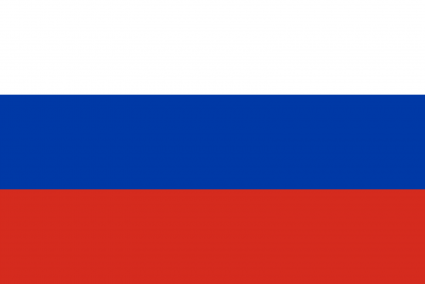| Category: Left-Leaning College State | ||
| Civil Rights: World Benchmark |
Economy: Frightening |
Political Freedoms: Very Good |
Regional Influence: Eminence Grise
Location: The Confederacy of Free Nations
92
The Constitution

The Constitution was initially written in such a manner that it only benefited the few, i.e. the titled and rich elite who wanted to retain their power and privilege. But over the centuries, Russia’s most important legal document was amended numerous times to fit in with Russian society as it matured and grew. It guarantees all citizens fundamental and unalienable human rights such as the right to life, liberty and property. It also extends legal protections such as the right to vote, a trial by jury, privacy, freedom of speech and religion etc. All of the basic rights that people expect to enjoy in any modern democratic country are laid out in the Constitution.
The executive is comprised of the prime minister and their federal cabinet. The PM and their appointed ministers exercise executive power through their imperial prerogatives and are accountable to the Duma. Federal ministers may only be drawn from the lower house. Federal subjects are administrated by governors and their cabinets.
Parliament is the national legislature of the country and is bicameral. It derives its legitimacy from the Crown and is also invested with imperial prerogatives. The 85 Assemblies of the federal subjects are unicameral. National law requires that they conduct their local and regional elections under a system of proportional representation. All laws passed by Parliament receive Imperial Assent from the Tsar and all laws passed in the subjects receive it by proxy from the Tsar's representative in each oblast, the Lord Lieutenant.
The independent judiciary is made up of the Supreme Court and lower national and regional courts. It is unelected so as to be free of political appointments and bias. The judiciary is invested with imperial prerogatives to carry out the Tsar's justice.
Changes to the Constitution require a two-step process. Firstly the change must pass in both houses of Parliament. Then the proposed change is either approved or rejected by the electorate in a national referendum. If it is approved, the Tsar signs it into law.
The roles, privileges and restrictions of the Imperial Family are detailed in the Constitution. The monarch and their family's duties are outlined in a variety of sections including constitutional, ceremonial, diplomatic and charitable. The Tsar acts as an adviser to the government of the day. The Imperial Family, but more specifically the Tsar, play a ceremonial role in holding the nation together.












